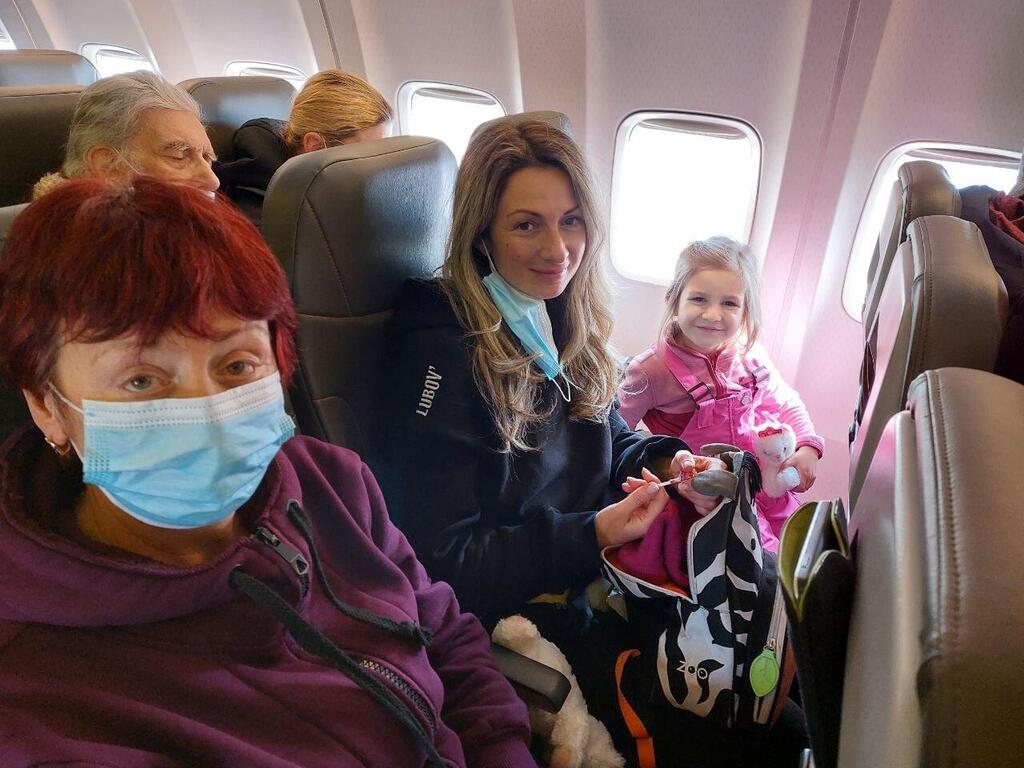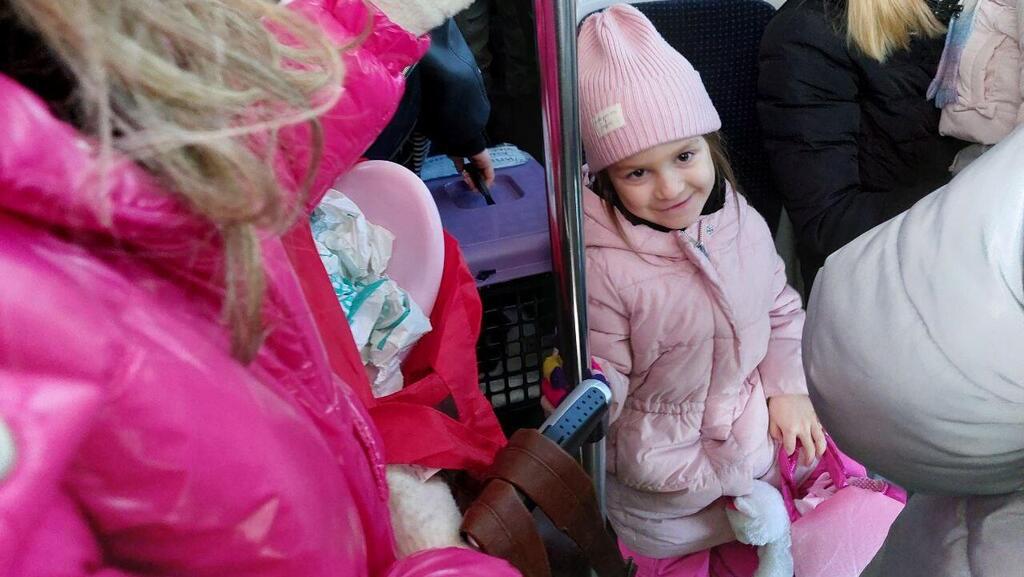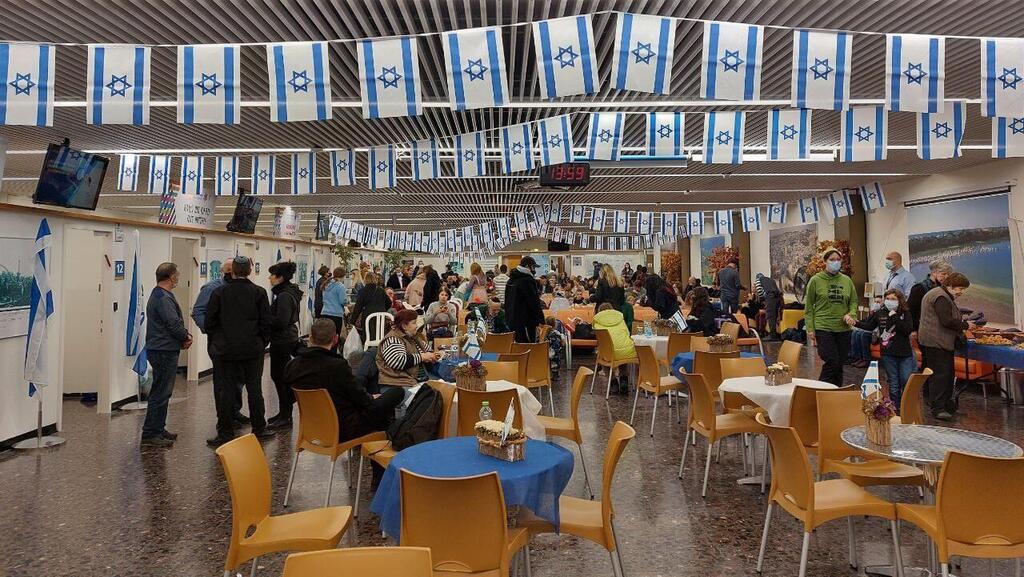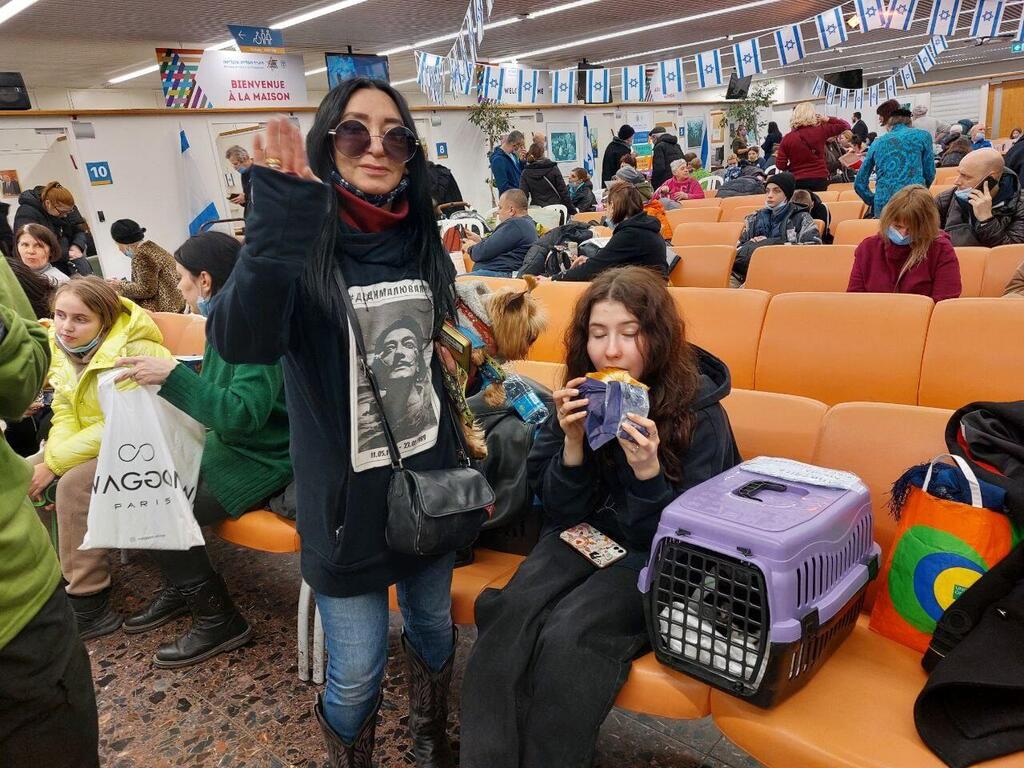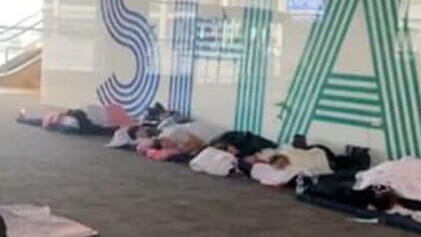It was a long and tumultuous journey for the hundreds of Ukrainian Jews who arrived on an Israeli rescue flights from Moldova and finally landed safely in the Jewish state on Sunday.
Although the airspace in Moldova is closed, the Chisinau International Airportis still operating in an emergency regime, allowing rescue operations as hundreds of refugees from all across war-torn Ukraine pour into the complex after spending days on the road.
Maria Markova, who arrived from Odessa with her six-year-old daughter, never thought about coming to Israel, or even leaving Ukraine, but when her daughter asked her if they are in danger, she didn't think twice.
"My daughter knew there was a war, and she asked me if we are going to die, that's when I decided we are leaving. I didn't tell her that we might stay in Israel permanently, because I didn't want her to worry, she doesn't know we might never come back to Ukraine," she said.
Maria said she tries not to invoke suspicions in her daughter and therefore did not tell her that they are making Aliyah to Israel. "She does not know that we may never return to Ukraine. All her dolls and games are at home with the dresses she loves the most."
Markova's 80-year-old mother lives in a nursing home in Ashdod. She and her daughter can't live with her, which is why they don't know where they're going to go upon landing. Markova is a director of a company in Ukraine that was shut down because of the war, and she has many concerns over having to look for a job in a new country. Many Ukrainians don't speak English, much less Hebrew, and fear the process of starting a new life will be very challenging.
Boris Trigerman previously lived in Israel but has been living in Kyiv for many years. As a result of the war, he's back in the country. "I don't understand how in 2022 there's a war and every day people are dying," he said. "From Kyiv, we flew to Kishinev, and from there we took a bus to the rescue plane, we have been on the road for three days," he said.
"When we realized how big the crisis in Ukraine is, we understood we had to create an option to get people out of there as quickly as possible," said the director of immigration department of the Friendship Foundation in Kishinev, Benny Haddad.
"We assist the community to create temporary places where they can stay for a few days, while the consuls provide visas. The goal is to increase the number of rescue flights, this is the third flight, and from this week, we hope there will be one flight each day, even two if possible," Haddad added.
"Some of the new immigrants planned to come to Israel regardless of the war, while others didn't, but currently their country is burning, and Israel is an option for them. As Jews, they are entitled [to come] via the Law of Return and it is our duty to bring them here safely," he said.
The rescue flight had some 150 passengers on board, most of them arriving only with a small suitcase which they had well wrapped, so they wouldn't lose anything they brought with them from home.
Tatiana and Serafima Tsifiina also brought their best friends with them - their dog Dezoro and cat Merrick. Serafima is 19, and says she's relieved she had finished school in Ukraine. The plan on staying with their grandmother, who lives in Bat Yam. "We would like to go back to Odessa, but we don't know if it will be possible," they said.
After the plane landed, the refugees had to fill out forms, which unlike the short rescue flight, took a few hours. While they were busy with the forms, their relatives had to wait for them outside - in anticipation of seeing their relatives.
Natasha Beck from Modi'in came to meet her family from Odessa and was forced to sit in the reception area on the floor while waiting for them because the old compound they were supposed to leave for is a closed military area - so everyone is forced to wait.
Some of them even had to wait outside in the cold or at the entrance of the compound which is still technically outside. "I thought the area would be more organized like a reception hall at a normal airport," said Beck. "There's nowhere to sit. There's a whole hall with a lot of space, but they don't let you in. My 70-year-old parents came here to meet the family, as well. Where will they sit and wait? It doesn't make sense."


